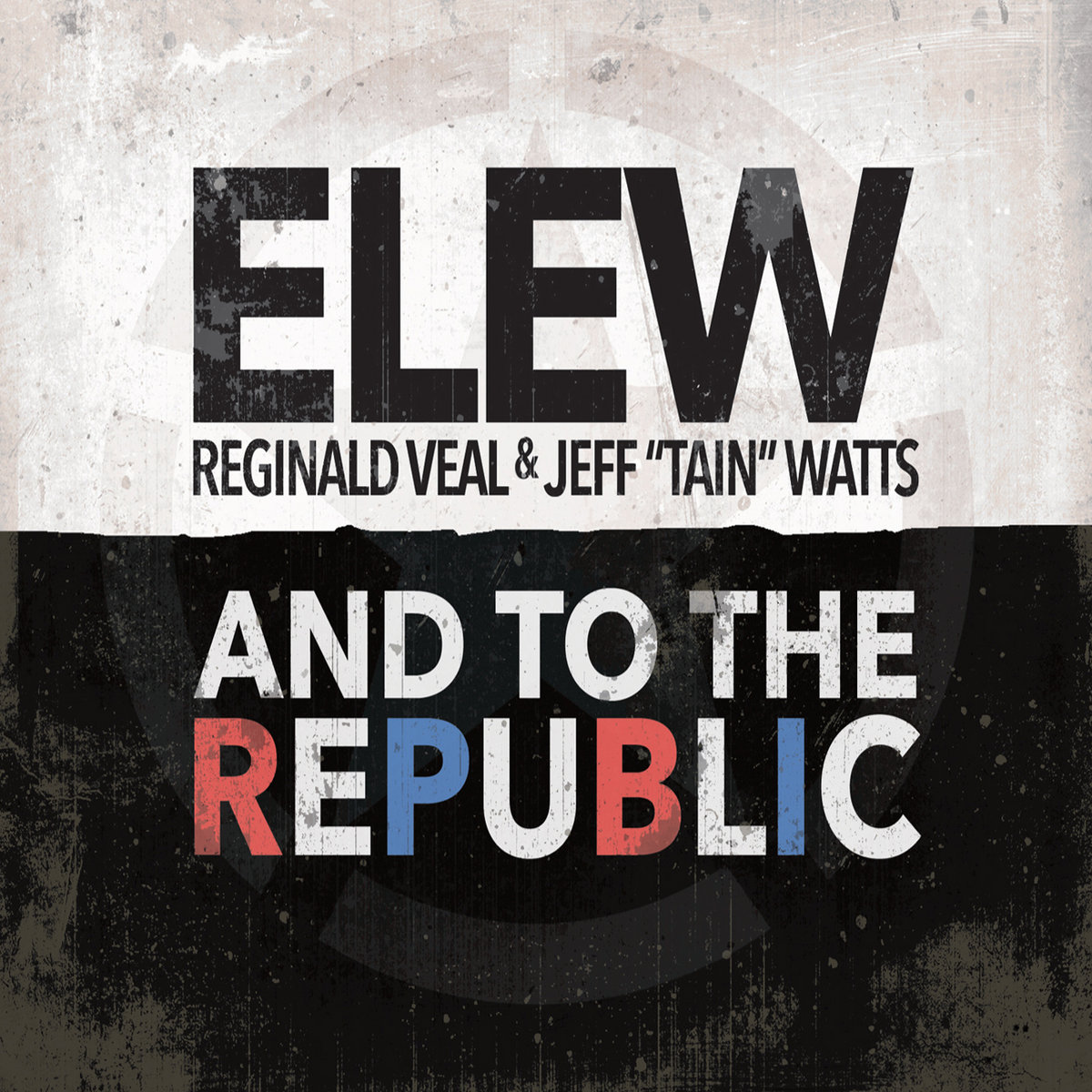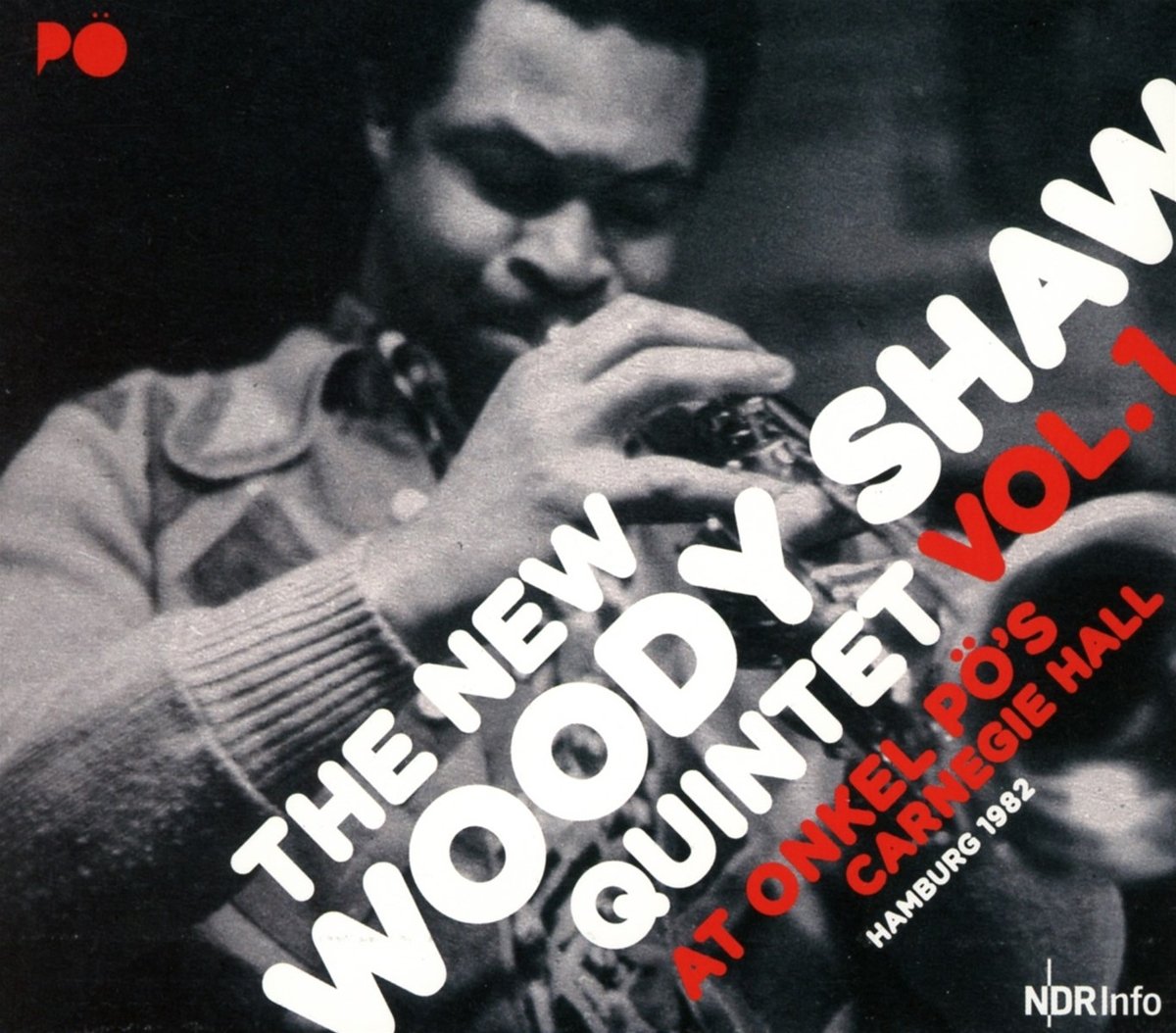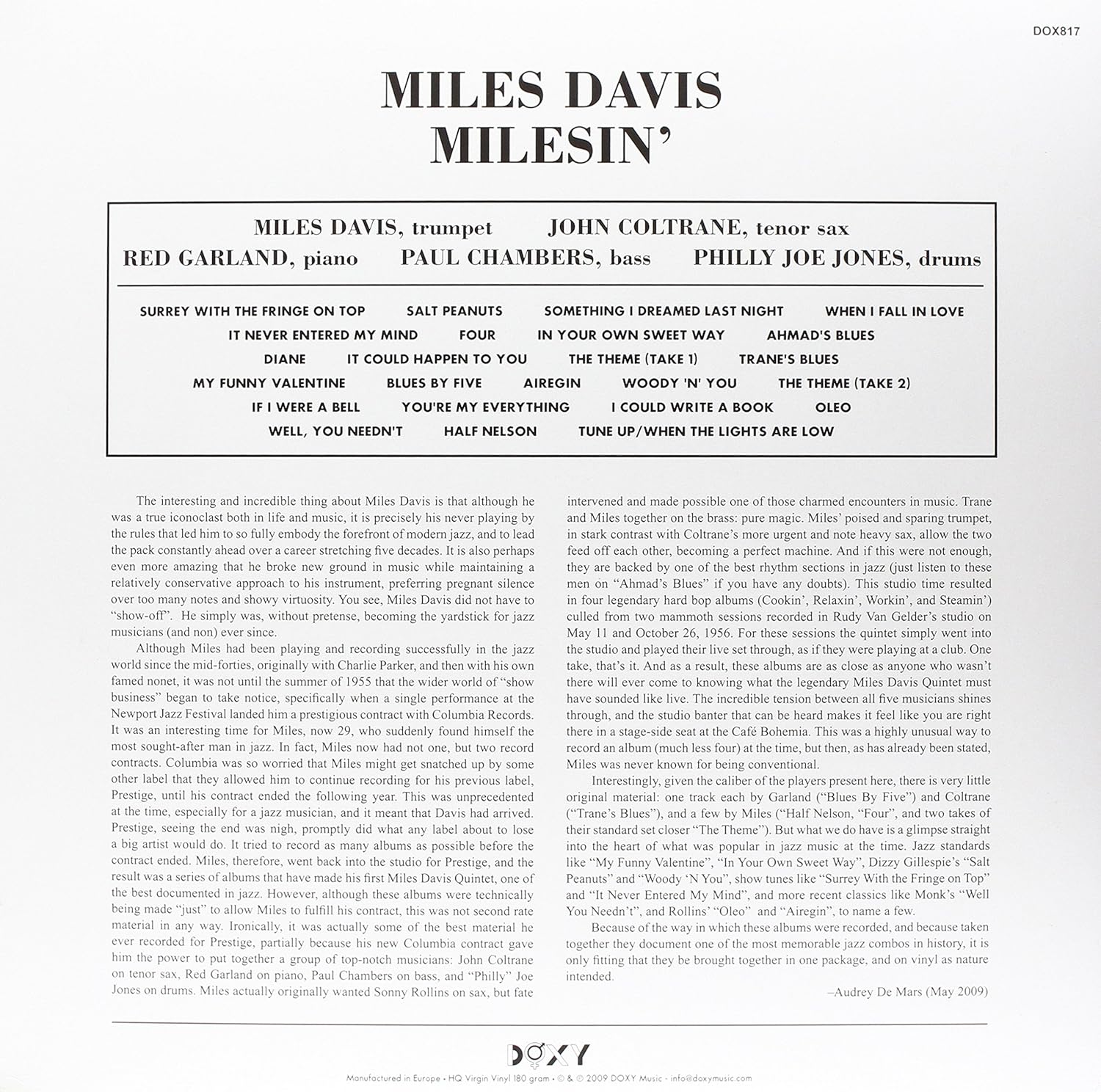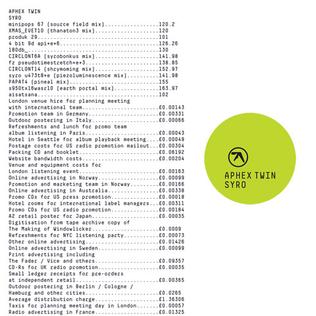What are you listening to and WHY might anyone be interested? (Vol. XIII)
Posted by: Richard Dane on 01 January 2017
2017 has arrived today, so time to start this thread afresh.
Last year's thread can be found here;

The Yardbirds - Five Live Yardbirds.
Yup, so here's another from the "had this since I was at school" treasure trove of memories.
Recorded live at both the The Crawdaddy and The Marquee, it's a belter. ![]()
dave marshall posted:
The Yardbirds - Five Live Yardbirds.
Yup, so here's another from the "had this since I was at school" treasure trove of memories.
Recorded live at both the The Crawdaddy and The Marquee, it's a belter.
Good stuff, Dave!
As imgur is not working perfectly this morning. Currently listening to this exciting jazz

Now Playing......

Aimee Mann - Lost In Space
Streaming on TIDAL....... It's Friday, end of the week, end go the year, "Lost In Space"

Chuck Berry - Chuck.
Goodbye Chuck, and what a way to bow out. ![]()
The Mutants - Tokyo Nights
Why? It's been sat on the unplayed pile for months and I thought I would give it a spin on the Tivoli whilst still wall building (See earler). It's hilarious, sort of punkabilly and roots rock'n'roll.
steve

Massive Attack - Mezzanine.
Simply playing some favourites this afternoon, and why not?
This is a classic, 'nuff said. ![]()
seakayaker posted:Now Playing......
Aimee Mann - Lost In Space
Streaming on TIDAL....... It's Friday, end of the week, end go the year, "Lost In Space"
Strange but I can’t find this on Tidal, I have full subscription for for Aimee Mann I only get three albums: Mental Illness, Charmer and Whatever
am I missing something ?
Here's one I've had since I was at school. In fact I've just played the intro of six different versions ripped to my NS01. Of all the digital versions I think the Rhino version is probably the best. The Steven Wilson remaster is a travesty to all that is right and proper. Here I'm actually playing the 24/96 version of the original mix which came with the SW set. At least this sounds familiar, although lacks the emotion of my original vinyl copy. Whatever... I love this album.
Intastella - The Rise And Fall Of A Northern Dubstar
Why? Same reason as The Mutants above. This, on the other hand is very different kettle of bananas. Evidently an extrapolation of a stage play of the same name by Stella Grundy. It features Jah Wobble, John Cooper Clark amongst others. Very different and somewhat dense in all. Breaking Glass for the 1990s perhaps?
steve
Now Playing....

Avishai Cohen - Into the Silence
Avishai Cohen (trumpet), Yonathan Avishai (piano), Bill McHenry (tenor saxophone), Eric Revis (double bass), Nasheet Waits (drums).
Streaming on TIDAL:............ A beautiful way to slide into the rest of Friday! Opening song 'Life and Death' is one beautiful track.....
Notes from ECM records found here:
“Cohen is a multicultural jazz musician, among whose ancestors is Miles Davis. Like Davis, he can make the trumpet a vehicle for uttering the most poignant human cries.”
– Jazz Times
Avishai Cohen impressed a lot of listeners with his soulful contributions to Mark Turner’s Lathe of Heaven album in 2014. Now the charismatic Tel Aviv-born trumpeter has his ECM leader debut in a programme of expansive and impressionistic compositions for jazz quartet (trumpet, piano, bass, drums), augmented by tenor saxophone on a few pieces. Into The Silence is dedicated to the memory of Avishai’s father David, reflecting upon the last days of his life with grace and restraint. Avishai’s tender muted trumpet sets the emotional tone of the music in the album’s opening moments and his gifted cast of musicians explore its implications. Israeli pianist Yonathan Avishai has played with Cohen in many settings and solos creatively inside the trumpeter’s haunting compositions, sometimes illuminating them with the phraseology of the blues. Cohen and drummer Nasheet Waits have a hypersensitive understanding and their interaction can, from moment to moment, recall the heyday of Miles Davis and Tony Williams or Don Cherry and Billy Higgins. Yet this music, while acknowledging inspirational sources, is very much of our time. Bassist Eric Revis, a cornerstone of the Branford Marsalis quartet for two decades, provides elegant support throughout. And saxophonist Bill McHenry, a subtle modernist who has worked with Paul Motian and Andrew Cyrille, shadows Cohen’s lines with feeling.

DWootton posted:seakayaker posted:Now Playing......
Aimee Mann - Lost In Space
Streaming on TIDAL....... It's Friday, end of the week, end go the year, "Lost In Space"
Strange but I can’t find this on Tidal, I have full subscription for for Aimee Mann I only get three albums: Mental Illness, Charmer and Whatever
am I missing something ?
When I do a search on Aimee Mann the following albums appear: Mental Illness, Charmer, @#%&*! Smilers, One More Drifter, The Forgotten Arm, Live at St. Ann's Warehouse, Lost in Space, Bachelor # 2, I'm With Stupid, and Whatever.
In the listing when doing the search mine only lists three but when you select "Show All Albums >" it will list them all.
Bert Schurink posted:
Now with a critical review of grammophone...
I understand where they are coming from, however Lars executes in an onortodoxe way...., which I can appreciate as it’s just different...
Lars Vogt is a pianist I admire greatly, though Chopin is not a composer with whom I’d readily associate him. In the booklet interview the pianist confides, ‘I’ve always loved Chopin, albeit somewhat from a distance’. The only piece which has featured consistently in his recitals is the C sharp minor Nocturne, Op posth, and this is one of the best things here – beautiful and quite unselfconscious. Elsewhere, though, doubts arise.
AdTech Ad
The First Ballade sets the scene: it’s a little too ponderous and climaxes sound a touch laboured, rather than emerging inevitably from the music as they do with Zimerman or, even more strikingly, Argerich in her unfettered 1959 radio recording. It’s almost as if Vogt has spent too much time thinking about this music rather than living it, so it can come across as over-intellectualised. There are times in the Nocturnes where I wanted more bel canto and he lacks the sense of inevitability that you find with Pires, particularly in the first of Op 9, though the second of the set is more convincing.
The First Scherzo doesn’t lack for rhetoric, particularly in the fearsome closing moments; but, compared to Pogorelich (admittedly extreme) or Rubinstein, Vogt seems somewhat buttoned-up. As for the Sonata, right from the opening I hanker after a greater sense of drive. Though Vogt is eager to bring out the work’s rapt moments, the Scherzo is tame indeed compared to Rachmaninov (but then so is everyone else) or, among modern-day pianists, Freire. And though you can make out every note in the finale, which is more than can be said for Rachmaninov, it lacks the sinister edge of Hamelin and, supremely, Cortot.
I’m sorry not to be more enthusiastic about this: it’s not that Chopin and Vogt are ill-matched but more that the relationship between pianist and composer needs time to mature.
seakayaker posted:DWootton posted:seakayaker posted:Now Playing......
Aimee Mann - Lost In Space
Streaming on TIDAL....... It's Friday, end of the week, end go the year, "Lost In Space"
Strange but I can’t find this on Tidal, I have full subscription for for Aimee Mann I only get three albums: Mental Illness, Charmer and Whatever
am I missing something ?
When I do a search on Aimee Mann the following albums appear: Mental Illness, Charmer, @#%&*! Smilers, One More Drifter, The Forgotten Arm, Live at St. Ann's Warehouse, Lost in Space, Bachelor # 2, I'm With Stupid, and Whatever.
In the listing when doing the search mine only lists three but when you select "Show All Albums >" it will list them all.
Thanks. I don’t get a ‘show more’ option for Aimee Mann
oh well
Woody Shaw - At onkel po's carnegie hall

From amazon:
Extraordinary talented jazz trumpeter Woody Shaw recorded at the zenith of his personal development in 1982, accompanied by a sensational group of musicians.
The group includes drummer Tony Reedus, bassist Stafford James, the pianist Mulgrew Miller and the trombonist Steve Turre, who became one of the new young voices of the jazz trombone shortly afterwards.
Shaw's playing was characterised by technical perfection (just as those of his role model Freddie Hubbard) and a hands-on approach when it came to sound and tonality; Shaw was extremely fast when he wanted to be but never lost the clarity of his musical language. At the same time, everything he narrated on stage seemed to be told for the very first time - his colleague Randy Brecker described Shaw as "the last in a line of trumpeters, who really added something new to the art of the jazz-trumpet" and furthermore, he "really invented a new language".
With this release, Yury Martynov wraps up his traversal of Liszt’s transcriptions of all nine Beethoven symphonies, the first complete set to use historical instruments (an 1837 Erard and a Blüthner, c1867). In many ways, Martynov’s wide experience with a variety of historical keyboards and styles made him ideally suited to so ambitious a project. But what seems especially striking is that the high standards established with the first instalment in 2012 have not been maintained but surpassed.
Appropriately, Martynov saved the most challenging of these dauntingly difficult transcriptions for last. As did Liszt himself, who had produced a superb two-piano transcription of the Ninth, a work he often conducted, as early as 1851. Thereafter, despite the entreaties of his publisher, Breitkopf & Härtel, Liszt maintained that distilling the complexities of Beethoven’s last symphony for one player at one instrument was patently impossible. Yet in 1865, living in seclusion at a monastery on the Monte Mario overlooking Rome, he produced a translation of one musical medium to another that has yet to be surpassed in scope, craft or inspiration.
From the beginning, with Martynov’s skilful evocation of the lightning-bolt open fifths piercing the ominous clouds that cloak the Ninth’s first moments, the overwhelming impression is not of reduction but of an enlargement, an opening out, a sudden clarification of this familiar music. Paradoxically, Beethoven’s titanic vision, far from being tamed or diminished, looms even larger, more terrifying than is normally communicated in orchestral performances. Giving periods of relaxed contrast their full due, Martynov nevertheless maintains the inexorable trajectory of the movement to the end.
It is in the Scherzo that the advantages of Martynov’s instrument are perhaps most apparent. His fleet, secco performance is abetted by the quick sound decay of the Blüthner. Its lighter action also allows Martynov to establish and maintain an exhilarating tempo, here framing astonishing feats of agility. Enlivened by stirring rhythmicality, Martynov conjures a sonorous constellation that both thrills and amazes. The Trio has a minute delicacy that nevertheless remains bracingly masculine. After listening to the Scherzo repeatedly, I’m still surprised and a little disappointed when it ends.
AdTech Ad
With its requirement of emulating sustained string choirs, the Adagio poses unique challenges. Martynov meets them by creating an air of pervasive calm, out of which blossoms a narrative that reaches towards the supernal realms. Without courting stasis, Martynov achieves an unencumbered, otherworldly suspension of time. The increasingly elaborate figurations that embellish the music’s harmonic progress are better experienced than described.
The metamorphosis from the storm unleashed at the opening of the finale to the imploring earnestness of the ‘Ode to Joy’ is stunningly affecting. But it is scant preparation for the combination of rhythmic precision, colouristic imagination, judicious pacing and sheer exercise of musical will with which Martynov conjures the sublime exaltation of Beethoven’s exhortation. The abrupt shifts of affective gear occurring in the last five minutes seem perfectly natural but, despite their familiarity, here they emerge as freshly surprising and uplifting.
Of the major Romantics, Liszt alone had a personal connection with Beethoven. A case could be made that this first-hand association would prove to be the defining event of his life. Even in old age, he continued to refer to Beethoven as his great ideal, the lodestar of his artistic universe. Liszt’s advocacy of Beethoven’s music, at a time when many of his contemporaries were either unfamiliar with or baffled by the late-period works, is a matter of historical record.
At a remove of almost two centuries, the closest we may get to the actual experience of the galvanising effect Beethoven had on the next generation could well be these monuments erected by one of his most ardent disciples. Before the earliest attempts at sound reproduction, Liszt drew on every means at his disposal to create an accurate replica, a facsimile, of works he recognised as uniquely powerful, in order that others might better know and understand an artistic legacy he loved
and valued above all.
Yury Martynov is one of the few pianists around with the technical resources, musical grasp and conviction to recreate this legacy persuasively. In doing so, he amply demonstrates its continued usefulness and vitality. It seems safe to say that he has given us the Beethoven-Liszt cycle for our time, and one unlikely soon to be superseded.


Massive Attack - Blue Lines.
Can't really play "Mezzanine", and not follow it with this one.
Groundbreaking stuff at the time, and no less impressive today .......... a true" Desert Island Disc" of mine.

(2004)
Easy music to flow along with and relax.

3 x LP - DOXY 2009 reissue : )

Friday evening is Jazz night, open a bottle of wine time, cook a nice meal and chill-out and relax night : )
Debs
Bruno Major - A Song for Every Moon
Thanks to my niece Lara for my Christmas present.

Rhythmic textures, glitches, and break beats ... infectious timing with tight sofa vibrating bass... never sounded better with my new Naim NAC.
Now Playing.......

Boz Scaggs - A Fool to Care
Streaming on TIDAL....... In the mood for a little Boz....... and it does not hurt to have Bonnie Raitt & Lucinda Williams appear on the album.
Note on TIDAL: Boz Scaggs follows 2013's killer Memphis with a second Tennessee album. A Fool to Care was recorded over four days with producer/drummer Steve Jordan and a core band of guitarist Ray Parker, Jr. and bassist Willie Weeks at Nashville's Blackbird Studio. These 12 songs are primarily covers that reflect various sources, the most prevalent among them being R&B and soul. The band is augmented occasionally with strings, horns, and Music City luminaries including guitarists Reggie Young and Al Anderson and pedal steel boss Paul Franklin. Simply put, there is no filler here -- virtually every song is a highlight. The opener is a swaggering, horn-drenched presentation of Dorothy LaBostrie and McKinley Millet's "Rich Woman." Scaggs' reading is inspired by Li'l Millet & His Creoles' 1955 version more than Canned Heat's or Robert Plant and Alison Krauss'. The title track was cut as a country swing tune by author Ted Daffan in 1940. Scaggs reads it through the New Orleans R&B of Fats Domino. And speaking of NOLA, Bobby Charles and Rick Danko's "Small Town Talk" is executed flawlessly with slippery breaks by Jordan and a simmering B-3 by Jim Cox. "Hell to Pay" is an original, a badass blues driven by Weeks' funky upright bass. Sung in duet with Bonnie Raitt (who also plays mean slide here), Scaggs takes an all too rare guitar solo. "Last Tango on 16th Street" melds Carlos Gardel, West Coast jazz, and Brechtian drama. Scaggs' delivery is full of restrained empathy, not pity. His version of Richard Hawley's otherworldly waltz "There's a Storm a Comin'" features Franklin's pedal steel crying amid accordion, bass, bump organ, and B-3. It is an elegant outlier here. Scaggs offers Curtis Mayfield's "I'm So Proud" with an expressive falsetto that would make the composer proud. Huey P. Smith's 1958 classic "High Blood Pressure" is rendered raw, ragged, and raucous. That shimmering falsetto returns to Memphis in a grooving version of Al Green's "Full of Fire" before slipping toward smooth Philly soul with a gorgeous take on the Spinners' 1974 classic "Love Don't Love Nobody." But Scaggs saves the very best for last. He teams with Lucinda Williams for Richard Manuel's (the Band) "Whispering Pines." Franklin's steel returns in a breezy, warm, atmospheric arrangement that relies on the depth in Jordan's floor tom-toms. The contrast between Williams' bluesy, grainy contralto and Scaggs' soul-basted croon underscores the wrenching heartbreak in the lyric. Ultimately, A Fool to Care is not only a companion to Memphis, but also to 1997's Come on Home and his earliest (pre-Silk Degrees) sides. Scaggs' voice is unmarked by time. Whether singing new or old songs, he presents them in the moment as living, breathing entities. He remains a song interpreter who has few -- if any -- peers. ~ Thom Jurek

(1990)
Struggling to get Imgur to work this evening I hope they're not going to go down the same road as photobucket. Anyway, I fancied something Texican and kept it in the family with this one.

2003 - Tidal...
